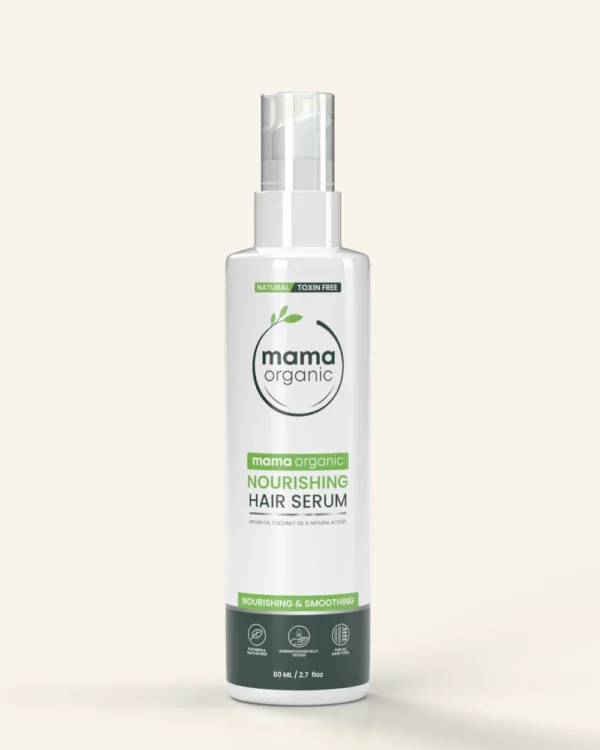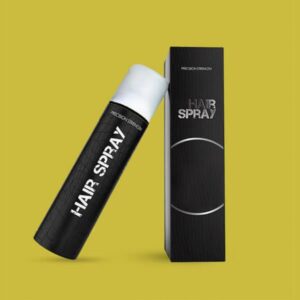Hair serums have become a staple in many people’s hair care routines, promising to tackle a wide range of issues from frizz and dryness to split ends and dullness. hairserum.pk lightweight, often silicone-based products can work wonders when it comes to improving the look and feel of your hair. But have you ever wondered what goes into these little bottles of magic? In this comprehensive guide, we’ll delve into the A-Z of hair serums, breaking down the key ingredients and formulas that make them so effective.
A is for Argan Oil
Argan oil is a superstar ingredient in many hair serums. Extracted from the kernels of the argan tree native to Morocco, this oil is packed with vitamins, antioxidants, and essential fatty acids. Argan oil helps to hydrate and nourish the hair, making it a fantastic choice for taming frizz and adding shine. It’s particularly beneficial for dry, damaged, or chemically treated hair.
B is for Biotin
Biotin, also known as vitamin B7, is a water-soluble vitamin that plays a crucial role in hair health. It strengthens the hair follicles, promotes hair growth, and can help prevent hair breakage. While biotin is not a primary ingredient in most hair serums, it is often included in formulations to enhance the overall health and strength of your locks. https://hairserum.pk/
C stands for Ceramides
Ceramides are natural lipids found in the hair shaft and play a vital role in maintaining its structural integrity. Hair serums containing ceramides can help repair damaged hair, reduce breakage, and improve overall hair health. They work by filling in gaps in the hair’s cuticle layer, making it smoother and less prone to damage.
D is for Dimethicone
Dimethicone is a silicone-based ingredient commonly found in hair serums. It’s known for its ability to create a protective barrier on the hair’s surface, locking in moisture and preventing frizz. While it can make your hair look smooth and shiny, some people prefer silicone-free serums due to concerns about product buildup over time.
E is for Essential Oils
Many hair serums incorporate essential oils such as lavender, rosemary, or peppermint. These oils not only add a pleasant scent but also offer various benefits for the hair. Lavender oil, for example, can soothe an itchy scalp, while rosemary oil may promote hair growth and thickness.
F is for Frizz Control
One of the primary reasons people turn to hair serums is to control frizz. Ingredients like silicones, oils, and polymers work together to create a smooth, frizz-free surface on the hair. Look for serums that specifically mention frizz control if this is a concern for you.
G is for Glycolic Acid
Glycolic acid is not a common ingredient in hair serums, but it can occasionally be found in products designed for scalp care. It helps exfoliate the scalp, removing dead skin cells and promoting a healthier environment for hair growth.
H is for Hyaluronic Acid
Hyaluronic acid is well-known for its hydrating properties in skincare, and it’s starting to make its way into hair care products, including serums. When applied to the hair, it helps retain moisture, keeping your locks looking soft and hydrated.
I is for UV Protection
Some hair serums contain UV filters to protect your hair from the damaging effects of the sun’s ultraviolet rays. Just as your skin needs sunscreen, your hair can benefit from protection against UV radiation, which can cause color fading and structural damage.
J is for Jojoba Oil
Jojoba oil is a versatile ingredient often found in hair serums. It closely resembles the natural oils produced by the scalp, making it an excellent choice for moisturizing and conditioning the hair without leaving it greasy. Jojoba oil can also help with dandruff and scalp irritation.
K is for Keratin
Keratin is a protein that forms the structural foundation of hair. Some hair serums contain keratin to help strengthen and repair damaged hair, especially hair that has been subjected to heat styling or chemical treatments.
L is for Lecithin
Lecithin is a natural emulsifier that can be found in hair serums to improve their texture and spreadability. It also has moisturizing properties and can help prevent moisture loss from the hair shaft.
M is for Marula Oil
Marula oil is extracted from the nuts of the African marula tree. It’s rich in antioxidants and fatty acids, making it an excellent choice for nourishing and hydrating the hair. Marula oil is lightweight and easily absorbed, leaving your hair soft and shiny without weighing it down.
N is for Niacinamide
Niacinamide, also known as vitamin B3, is another ingredient that can benefit the scalp. It helps improve the overall health of the scalp, which in turn can lead to healthier hair growth. It also has anti-inflammatory properties, making it suitable for those with sensitive scalps.
O is for Orchid Extract
Orchid extract is a less common but luxurious ingredient found in some high-end hair serums. It’s believed to help condition the hair and add a touch of fragrance. While it may not be a necessity, it can certainly enhance the overall sensory experience of using a hair serum.
P is for Panthenol
Panthenol, also known as provitamin B5, is often included in hair serums for its moisturizing and conditioning properties. It helps improve the hair’s elasticity and can reduce the appearance of split ends.
Q is for Quality Matters
When choosing a hair serum, it’s essential to consider the quality of the product. Look for reputable brands and read reviews to ensure you’re getting a serum that delivers on its promises. Additionally, consider your specific hair type and concerns to find a formula that suits you best.
R is for Rosehip Oil
Rosehip oil is known for its high concentration of essential fatty acids and vitamins. It’s a fantastic option for nourishing and repairing damaged hair. Rosehip oil can also add a healthy shine to your locks.
S is for Silicone-Free Options
While silicones can provide short-term benefits in terms of smoothing and shine, some individuals prefer silicone-free hair serums. Silicone-free options use alternative ingredients like natural oils and plant extracts to achieve similar results without the potential for product buildup.
T is for Texture
Hair serums come in various textures, from lightweight sprays to thicker oils. The texture you choose depends on your hair type and the results you want to achieve. Lighter serums are ideal for fine hair, while thicker serums are better for thick or coarse hair.
U is for Usage
How you use a hair serum is just as important as the ingredients it contains. Start with a small amount and apply it evenly through your hair, concentrating on the ends. Avoid applying too much, as this can make your hair appear greasy.
V is for Vegan and Cruelty-Free Options
If you’re environmentally conscious, look for hair serums that are vegan and cruelty-free. These products are not tested on animals and do not contain animal-derived ingredients, making them a more ethical choice.
W is for Wet or Dry Hair
Hair serums can be applied to both wet and dry hair, depending on your preference and the results you want. Applying to wet hair can help distribute the product evenly, while applying to dry hair can help with touch-ups and added shine throughout the day.
X is for X-Factor Ingredients
Some hair serums contain unique or exotic ingredients touted as “x-factor” additions. These can include rare botanical extracts, precious oils, or cutting-edge technologies. While they may be intriguing, it’s essential to consider whether they address your specific hair concerns.
Y is for Your Unique Needs
Ultimately, the best hair serum for you depends on your unique hair type and concerns. Whether you’re looking to add shine, control frizz, or repair damage, there’s a hair serum out there tailored to your needs.
Z is for Zero Residue
A high-quality hair serum should leave zero residue on your hair. It should absorb easily and leave your locks feeling soft, smooth, and weightless. If you find that a serum leaves a sticky or greasy residue, it may not be the right product for you. Hair serum ingredients and Formulas Explained.
Conclusion:
Hair serums are a versatile addition to any hair care routine, offering a wide range of benefits thanks to their carefully crafted formulas. Whether you’re dealing with frizz, dryness, or damage, there’s a hair serum with the perfect ingredients to address your specific concerns. By understanding the A-Z of hair serums and the ingredients they contain, you can make informed choices to achieve the healthy, beautiful hair you desire.





